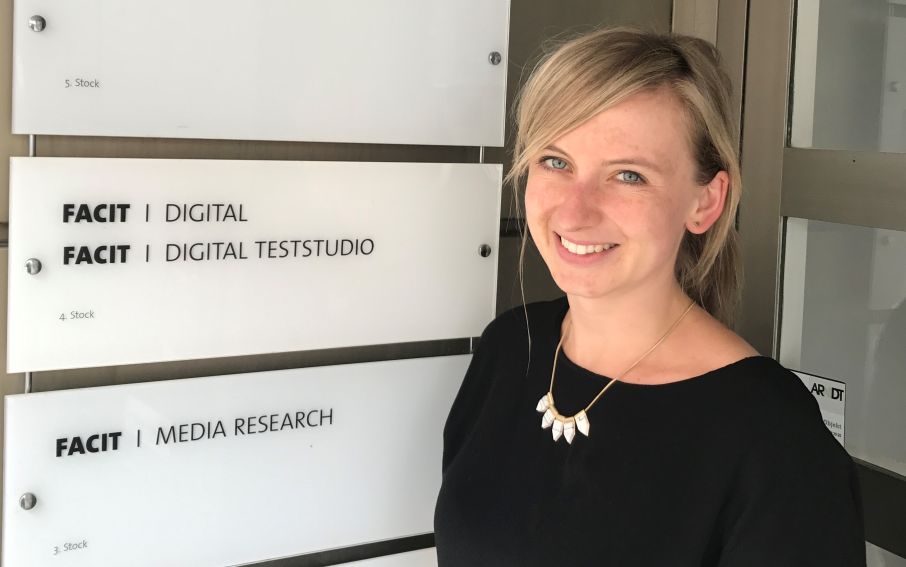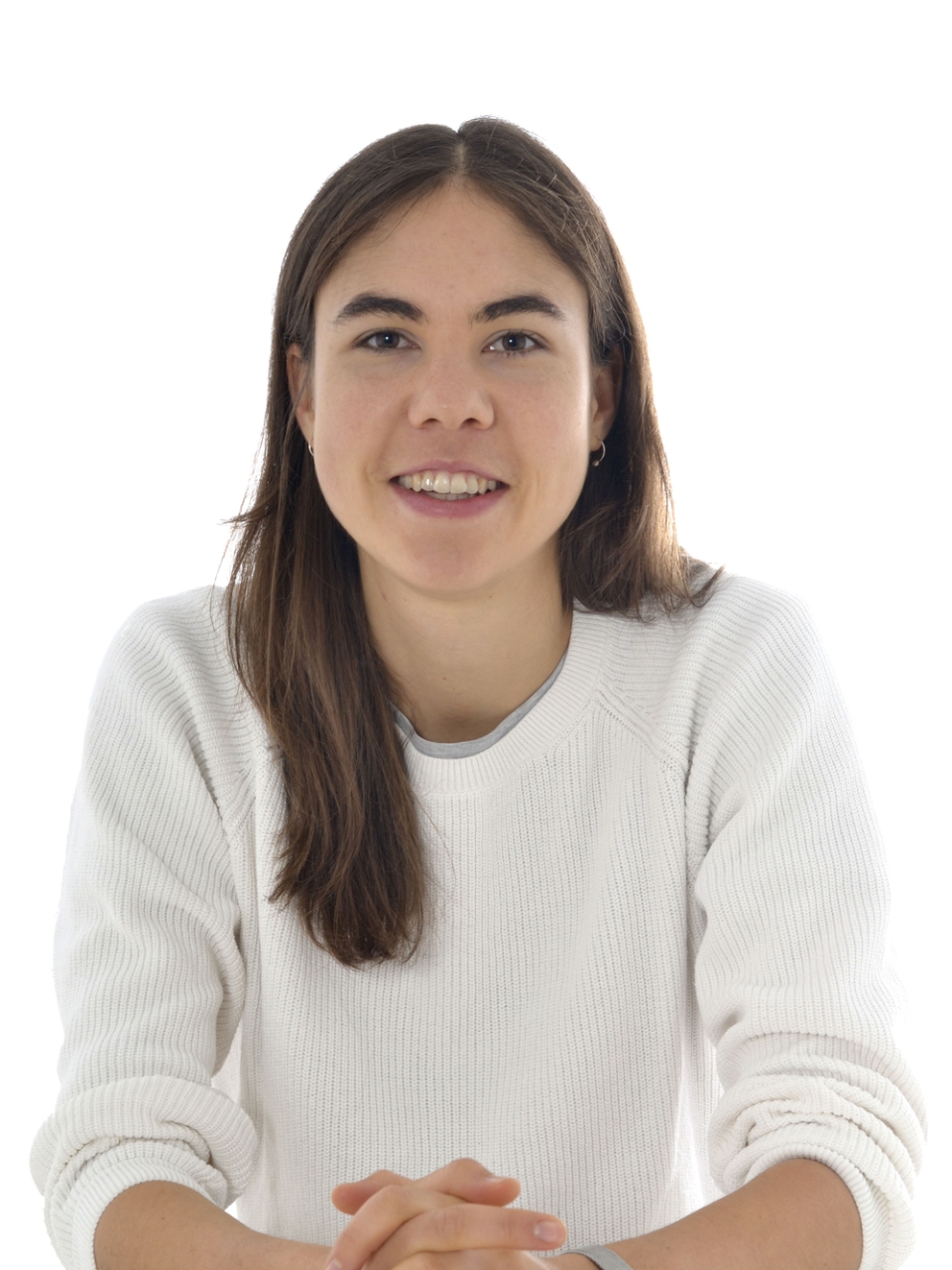Wir haben leider kein passendes Ergebnis gefunden.
Inside Facit Digital – or: what it means to work as a UX trainee


Today, Marion Dirnberger is ready to answer our questions.
Under the heading "Inside Facit Digital" we introduce employees of Facit Digital at regular intervals.
This time Marion Dirnberger will answer our questions.
Since January 2018, she has been working as a trainee for User Experience/Usability Research at Facit Digital. She tells us what she deals with every day, what is special for her in her work in UX research and which usability-failures are not working for her.
1. What is your job about? What are your typical tasks as a trainee?
My job is about analyzing user needs and user behavior in order to provide the best possible suggestions for optimal user conditions. As a trainee I mainly support my colleagues in their projects. Most recently, I was involved in a project from start to finish. This means that I was responsible for recruiting participants, was present at the interviews, wrote the minutes of the interviews, mostly from the observation room, and also conducted individual interviews myself. Finally I helped with the evaluation. Last week I also created a highlight video for another project. Here one picks out scenes of the individual interviews, which best emphasize the results of the tests and creates a short video from it.
2. What do you like most about your job as a trainee at Facit Digital?
What I like most about working at Facit Digital is that the tasks are very varied. Often I am involved in a project from start to finish, which gives me a good idea of the tasks involved and what is involved. On the other hand, I like the fact that you always take turns working with your colleagues and being in different teams. That way you learn a lot about the way they work and you can learn a lot from them.
3. Would you have imagined your everyday life like this?
My activities and tasks are very varied and I learn something new every day. It is important to me that you don't just sit in front of the computer, but also deal with people. My everyday work lives up to this claim.
4. Did you always want to become a UX consultant?
Until my third semester, I honestly had no clear idea where my studies would take me one day. However, when I was able to gain an insight into my later specialization in multimedia psychology for the first time and in this context also had the opportunity to get to know the daily work routine in a UX agency, I knew: this is what I wanted to do after my studies.
5. What did you do before that?
Before I came to Facit Digital, I studied Communication Psychology with a focus on Multimedia Psychology in Görlitz. The main focus was on usability and user experience. However, before my studies I did something completely different, namely an apprenticeship as a tax clerk.
6. How did it come about that you applied to Facit Digital?
After my studies, it was important for me to gain a lot of practical experience and to apply the theoretical content of my studies to my everyday work. Facit Digital is specialized in all UX methods and I have the opportunity to put theory into practice.
7. What are you looking forward to most when you come to work in the morning?
I look forward to seeing my colleagues.
8. Your highlight at Facit Digital so far?
My first highlight at Facit Digital was right at the beginning: the good atmosphere in the team and the great teamwork. After just a few weeks I had the feeling that I had been part of the team for a long time.
9 Why UX/ Usability Research?
I think everybody knows the problem of being on a website and not finding what you are looking for. Or wanting to operate a device, but it doesn't work the way you think. Such situations are still very common in everyday life. Usability and usability are important aspects in the digital world that unfortunately are still too often ignored and do not get the attention they need. That is why I want to contribute to solving such problems that arise or, in the best case, to preventing them from arising in the first place.
10. Qualitative or quantitative?
Up to now I mainly dealt with qualitative topics. But I also find quantitative projects exciting. Which of the two methods, or whether I prefer one method at all, I will probably only be able to say in a few years when I have dealt with both variants in detail. But until then I want to be able to master and apply both very well. In the end, it also depends on which insights you want to gain and therefore either qualitative or quantitative is better suited for this.
11. Which UX fail gets you upset?
Good question. The most annoying thing is when, for example, I just want to change a simple setting on a device and I can't do it because I can't find the appropriate options. This is how I felt recently with the touch screen in my parents' car. Because of the time change from winter to summer time, I wanted to change the time. But I couldn't find the appropriate setting options. This was quite annoying. Especially because I don't want to take out the manual for such a setting. This should be easy to change. Or rather, with all the technology that such touchscreens now offer, I expect the clock to automatically adjust to winter or summer time.
Sie wollen noch mehr über die Arbeit bei Facit Digital erfahren? Lesen Sie hier das Interview mit Florian Völkl, Senior Consultant.

Theresa Amberger
As a studied communication scientist Theresa asks many questions and likes to get to the bottom of things, as for example for the blog series "Inside FaDi". In UX Consulting at Facit Digital, she can optimally combine this passion with her interest in digital trends and technological innovations.